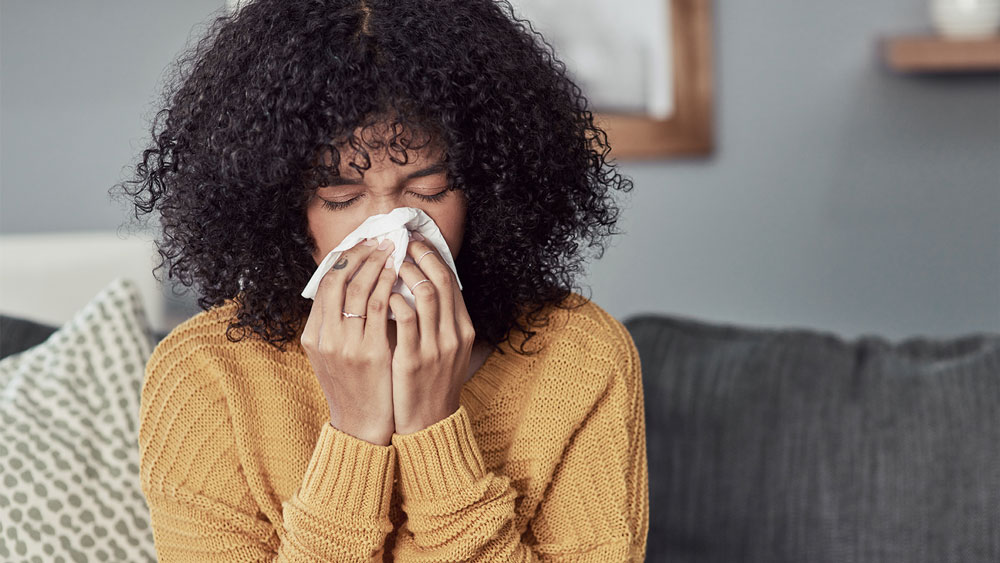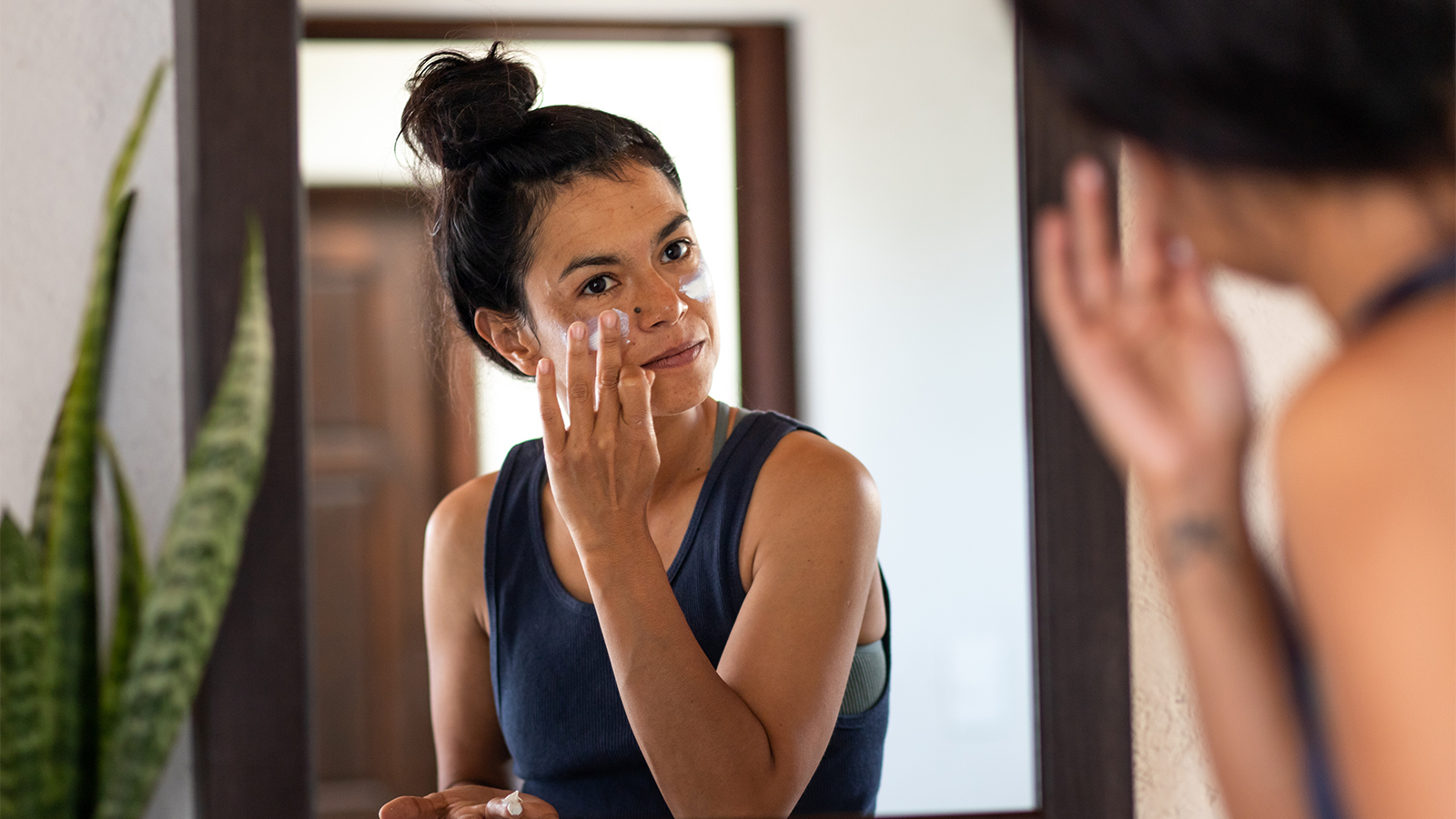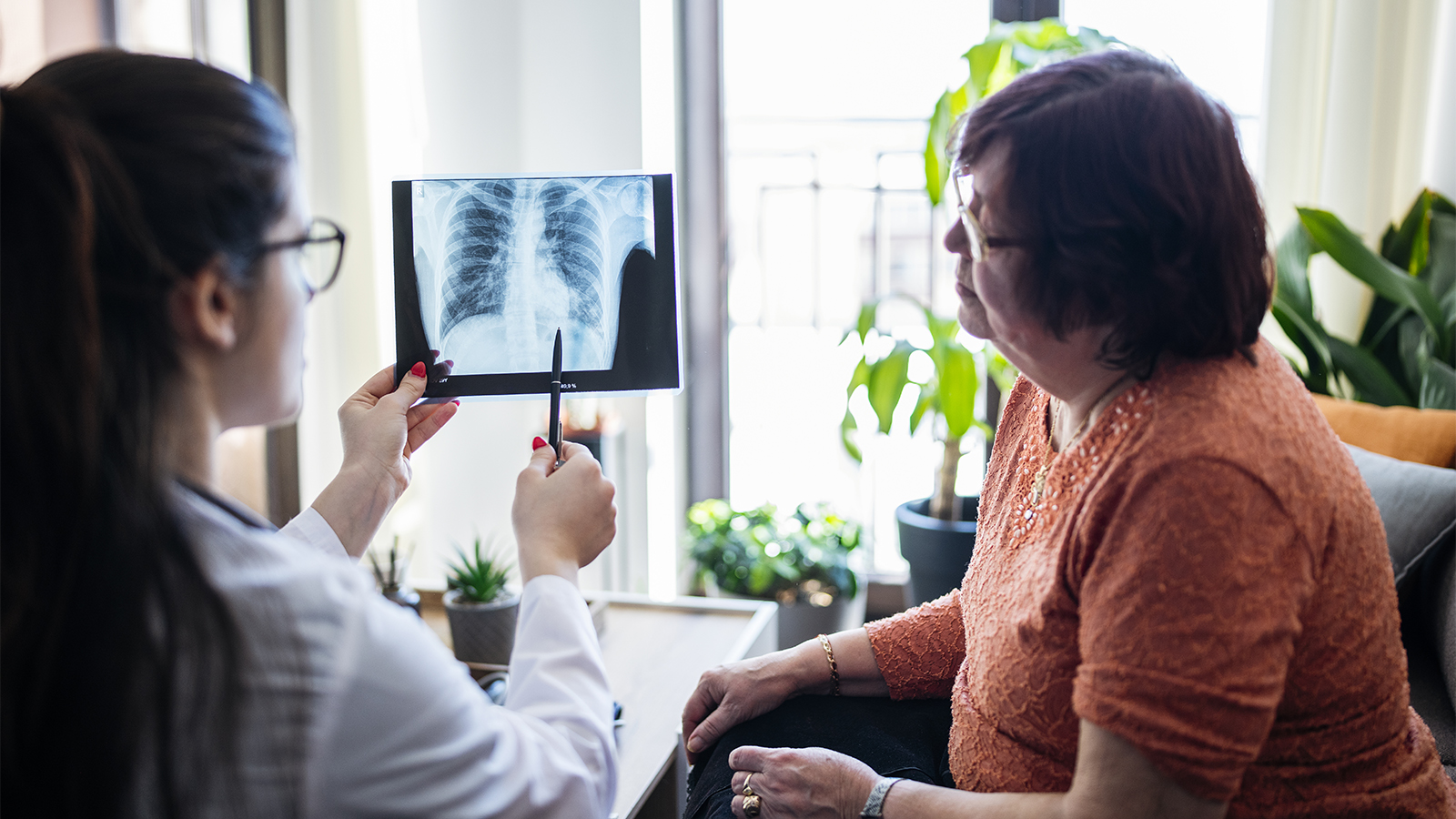Is Low Sex Drive Normal? Revealing the Complex Causes of Low Libido in Women
A chronic low sex drive is a sign of hypoactive sexual desire disorder. Discover what causes low libido and how expert help can transform your sex life.

By Elizabeth Kusturiss, MSN, CRNP, Women's Health Nurse Practitioner, Virtua Sexual Wellness and Pelvic Health
From movie scenes to song lyrics to advertising, we’re inundated with images of couples who seem eager for sex, anytime, anywhere. This is one of the biggest myths in our society—that a consistently strong sexual desire is the norm in a loving relationship. It can lead people to believe there’s something wrong with them if they’re not interested in sex.
The truth is that decreased sexual desire, or low libido, is much more common than society suggests. Most women experience lower desire at some point in their lives, but due to embarrassment, many avoid discussing it with a healthcare professional.
Why should you talk to an expert about low libido?
Studies indicate that decreased sexual desire can negatively affect body image, self-confidence, self-worth, relationships, and overall quality of life. Low sexual desire has also been associated with psychological and emotional distress.
While it’s normal to experience fluctuations in sex drive, a chronic or distressing lack of interest may be a sign of a hypoactive sexual desire disorder (HSDD), which is very treatable.
What causes hypoactive sexual desire disorder?
A woman’s libido is complex, and the diagnosis of HSDD can stem from a variety of biological or psychosocial factors, including:
- Everyday life stressors
- Body image concerns
- Relationship quality
- Painful medical conditions
- Fatigue
- Depression
Complicating matters, sexual desire differs for women compared to men. This can include:
- The mind-body connection during sex
- Interpersonal factors, such as relationship troubles or lack of emotional intimacy
- Concerns about privacy and safety
- A history of trauma or negative emotions like shame, fear, or guilt related to sex
- Past experiences with disappointing or painful sex
But it’s not merely a mental issue—decreased sex hormones due to menopause, fatigue, or illness can also take a toll. Common medications, from antidepressants to antihistamines, and oral contraceptives to cholesterol meds, can reduce a woman’s sexual desire.
What’s a normal sexual response?
There’s no “one size fits all” approach to sexual response. However, gaining a better understanding of female anatomy and orgasm can help you overcome feelings of being “abnormal.”
You may experience a single intense orgasm during sex or sexual play, while another woman may have multiple orgasms that are less intense. Both experiences are completely normal. Understanding adequate sexual stimulation—and the effects of age-related changes in sexual desire at various life stages—can unlock new opportunities to have a healthy sex life.
Personalized treatment for hypoactive sexual desire disorder
Treatment begins with communication and education. At Virtua Sexual Wellness and Pelvic Health, we collaborate with patients to address emotional factors in their relationships. Psychotherapy or couples sex therapy can be beneficial to modify existing thoughts, behaviors, or emotions, or to improve communication between partners.
We make it easy to talk about and learn how to add sexual aids or toys that may also improve your sex drive. Clitoral stimulators or vibrators can enhance your arousal, and topical feminine massage oil or compounds can increase blood flow and genital nerve sensitivity.
Specific nutritional supplements, traditional or bioidentical hormone replacement therapy, or anti-anxiety medications like buspirone may help increase your sex drive. Additionally, two medications are available specifically for women with HSDD: Addyi (flibanserin) and Vyleesi (bremelanotide). Systemic testosterone has also been shown to increase desire in women who are peri- and post-menopausal, though it's not FDA approved at this time.
Sometimes, a medication you take for another condition can influence your libido. In that case, we'll consider replacing it with medications that don't affect it, if available.
With so many life-changing treatment options to improve your sex drive, you shouldn't struggle in silence. A sexual dysfunction specialist can work with you to identify the root cause and develop a tailored treatment plan. No matter which treatment path you choose, you can experience tremendous relief in having a supportive space to express your concerns and make positive changes to your libido.
Virtua experts are here to help you improve your sex drive
We understand that sexual dysfunction influences both physical and emotional health and, fortunately, most cases are treatable. Our goal is to help you restore your sexual well-being, as this can profoundly improve your relationships, self-esteem, and overall quality of life.
Schedule an appointment at Virtua Sexual Wellness and Pelvic Health or call 856-247-7435.
There's So Much More to Explore
Discover expert insights, inspiring stories, health tips, and more by exploring the content below!

Understanding Food Addiction: Causes, Symptoms, and Recovery Strategies

The Weird Pregnancy Side Effects No One Tells You About

10 Hand Washing Tips to Keep You Healthy All Year

How the Unique Stages of a Woman's Heart Affect Her Health

Cervical Cancer Screening Guidelines: What You Need to Know

HeartTalk Magazine

How to Spot the Early Signs and Symptoms of a Stroke

How Weight-Loss Surgery Can Improve Diabetes, Heart Health, and More

How to Achieve Your Health Goals This Year

Knee Replacement Rehab: 7 Exercises to Restore Your Strength and Range of Motion

Caregiving During the Holidays: Ways to Manage Stress and Find Joy

Bioidentical Hormone Replacement Therapy Pellets: Relief for Menopause and Andropause Symptoms

Why Is Sex Painful During Pregnancy? Pelvic Congestion Syndrome Explained

COVID-19 Vaccines and Pregnancy: FAQs

COMFORTing Tips to Avoid Holiday Heartburn

How to Tell the Difference Between Cold, Flu, and COVID-19

From Exhaustion to Empowerment: Tracy's Hormone Replacement Therapy Success Story

Daily Wellness Checklist: Simple Habits for Feeling Good Inside and Out

Sexual Health FAQs: The Questions Everyone’s Too Embarrassed to Ask

3 Reasons Why Now's the Time to Find Relief From Varicose Veins

How to Get and Stay Healthy This Fall

How to Reverse Prediabetes and Prevent Type 2 Diabetes

6 Ways to Get More Out of Your Daily Walk

Young Breast-Cancer Survivor Has New Hope for Healthy Future

What To Know About Vaginal Discharge During Pregnancy

Is Cancer Hereditary? What You Need to Know About Your Genetic Risks

Tara's Story: From Debilitating Uterine Fibroid Pain to a Half-Marathon Medal

Is Your Post-Pregnancy Belly Bulge a Sign of Diastasis Recti?

Your Guide to Mammograms: When to Get Screened and What to Know

The Top 10 Foods That Boost Your Brain Health

Is It Safe to Exercise During Pregnancy?

Prevent Yard Work Injuries: Tips for Mowing, Gardening, and Raking

Healthy Weight Gain During Pregnancy: A Guide for Moms-to-Be

How to Curb Nighttime Snack Cravings

Is Your Daily Walk Making You Really Sore?

IBS and Alcohol: Can You Still Enjoy a Drink?

'Feeling Joy Again': ECT Brain Stimulation Therapy Restores Ashley's Well-Being

Not Just for Wrinkles: Botox Injections Promote Improved Bladder Control

Caring Maternity Team Transforms Harley's Pregnancy Crisis Into Lasting Memories

Robotic Hysterectomy, Trusted Care Help Bobbi Shine Again

Easy, Healthy Lunch Ideas for the Beach

How to Stay Cool and Prevent Heat Illness All Summer Long

Do Not Get Burned by These Sunscreen Myths

Beat the Bugs and Save Your Summer

How to Have a Healthy Pregnancy if You're Overweight

Why You Get Sick on Vacation (and How to Stay Healthy While Traveling)

6 Hot Tips for a Safer Summer

4 Surprising Health Truths You Should Know

5 Interesting Facts About Your Heart

Is Low Sex Drive Normal? Revealing the Complex Causes of Low Libido in Women

CABG Surgery: What Women Should Know About Heart Health and Healing

5 Feel-Good Activities to Explore Around South Jersey

Stress Incontinence vs. Urge Incontinence: What's the Difference?

3 Changes You Can Make Today to Lower Your Cancer Risk

A Lung Cancer Screening Could Save Your Life

Take Pride in our Health: Must Dos for LGBTQ+ Preventative Care

4 Foolproof Pelvic Floor Strengthening Exercises for Women

What to Expect During Perimenopause

Protect Yourself From Tick Bites and Lyme Disease

10 Quick Ways to De-Stress

4 Ways to Stay Fit and Healthy on a Budget

Do You Know the Signs and Symptoms of Uterine Fibroids?

How Are Uterine Fibroids Treated?

Can I Have Sex After a Hysterectomy?

From Restless to Restful: How Movement Improves Sleep

5 Simple Ways to Spring Clean Your Wellness Routine

What to Expect From a Robotic Hysterectomy

When You Need A Hysterectomy Know Your Options

Take Control of Incontinence, Prolapse, and Other Pelvic Floor Disorders

How Can I Prevent Bone Loss and Osteoporosis?

The Truth About Menopause, Weight Gain, and Belly Fat

Shedding Light on Lesser-Known Menopause Symptoms and Solutions

Debunking The Myths About Vaginal Dryness

Best Foods for Kidney Health

5 Essential Winter Foot Care Tips When You Have Diabetes

Advanced Minimally Invasive GYN Surgery Puts You at the Center of Care

Your 10-Point Plan to Avoid Winter Weight Gain

Colitis Symptoms Under Control, Jennifer Is ‘Living My Best Life’

Surprising Symptoms May Signal Stroke In Women

8 Key Steps to Better Blood Pressure Control

5 Back Stretches for the Work-From-Home Workweek

The HPV Vaccine: A Powerful Shield Against Cervical Cancer

How Does Breast Density Affect Your Mammogram?

Menopause: New Insights Into the Power of Hormone Replacement Therapy

How to Prevent and Treat Urinary Tract Infections

One New Heart Valve Saves Two Lives in the Tritten Family

6 Numbers Key to Keeping Your Heart Healthy

4 Easy Ways to Treat and Prevent Runner's Knee

Breast Cancer Diagnosis Inspires Catherine to Help Others

Five Mindfulness Tips That Can Help Heal Your Heart
Working from Home? Take a Quick Break to Stretch Your Wrists

Love Your Heart: Essential Care Tips for Every Stage of Life

How Do I Measure My Blood Pressure at Home?

How Do I Improve My Cholesterol Levels?

3 Ways to Reduce Your Stroke Risk

Sarah Wins Back Her Health After Crohn's Disease Diagnosis

A Breast Self-Exam Saved Kristen's Life

How Sex Keeps You Healthy as You Age

Protect Your Child From HPV and Related Cancers

Why IUDs Might Be The Most Effective Birth Control

5 Things You're Too Embarrassed to Tell Your OBGYN

